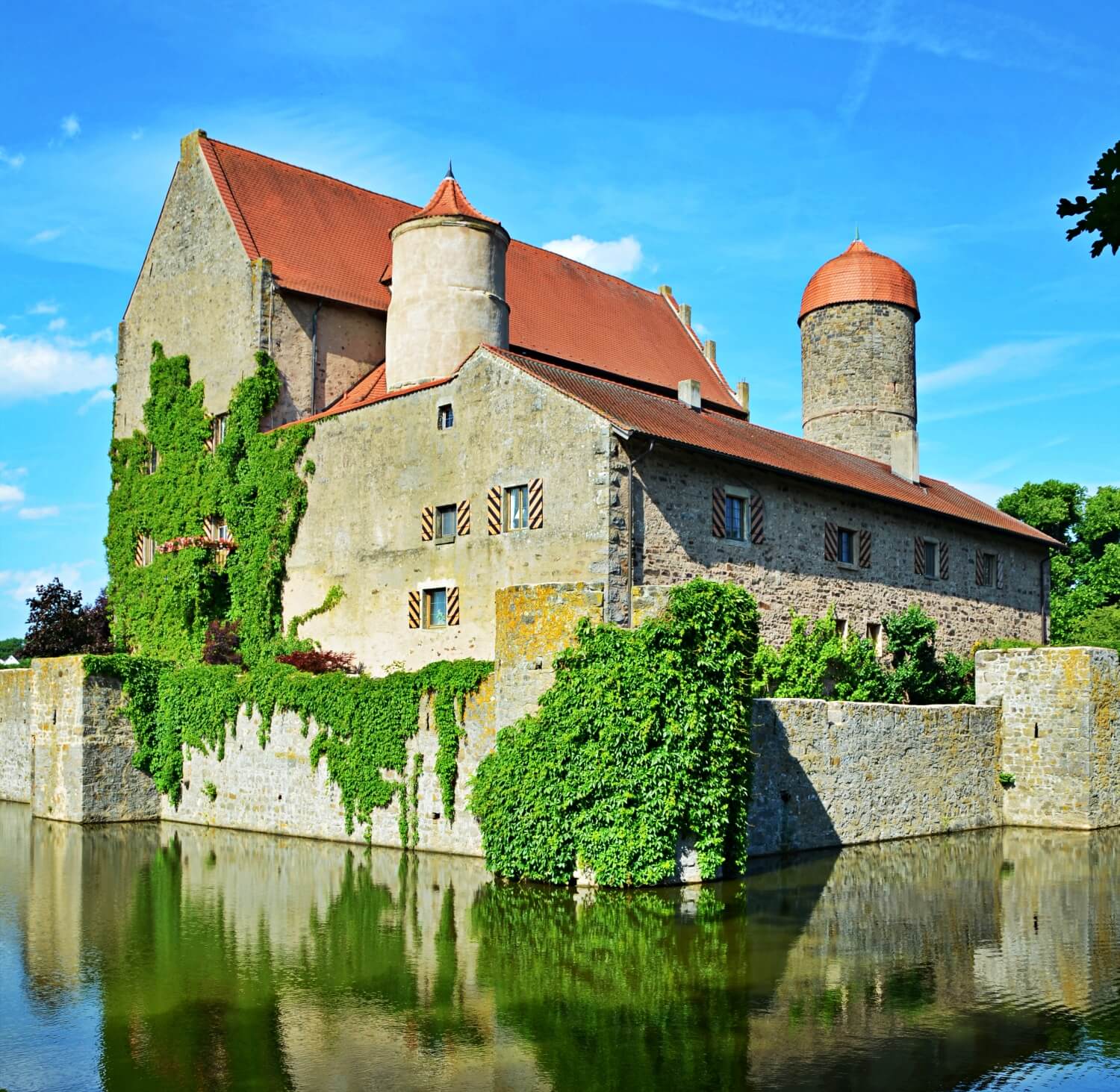Schloss Sommersdorf
Mittelfranken Bayern Germany
castle, chateau
Schloss Sommersdorf
Mittelfranken Bayern Germany
castle, chateau
The origins of Sommersdorf are obscure
Sommersdorf ist ein Ortsteil der Gemeinde Burgoberbach im mittelfränkischen Landkreis Ansbach
Previous names
Schloss Sommersdorf, Schloss Sommersdorf
Description
The origins of Sommersdorf are obscure. Early in the 13th century, a noble family named de Sunnemannesdorf settled here and presumably gave the village its name.
The castle is rich in history, and was built in the late 14th century by Ludwig von Eyb. His grandson Albrecht von Eyb, born at 1420 at Sommersdorf, became Germany’s first humanistic writer.
The Crailsheim family owns the castle since 1550. Wolf von Crailsheim brought the Protestant reformation to Sommersdorf in 1551, and his son Ernst enlarged the family holdings by purchases and grants.
During the Thirty Years War (1618-48) between the Catholics and the Protestants, Sommersdorf suffered a great deal. Houses in the village were plundered and burned, the fields lay fallow and the population was severely decimated by war and plague. But the castle itself survived.
In mid-19th century, the top floor of the Old Castle was pulled down due to dilapidation, the draw-bridge was replaced by a permanent bridge, and he castle was generally restored. Since the beginning of the 20th century, Schloss Sommersdorf has been continuously inhabited by the von Crailsheim family.
The Crailsheims are a large family with several other castles (the nearest is at Rügland, north of Ansbach) and a tradition of public service. In the 19th century, Graf Crafft v. Crailsheim was a top official in the court of King Ludwig II of Bavaria. Alarmed at the “mad” King’s mounting expenditures for castle-building at Neuschwanstein and elsewhere, Graf Crailsheim and others tried to have Ludwig certified insane. The scenario misfired, and Ludwig was found drowned. Ironically, another Baron v. Crailsheim had been the head of the public trust that administers Ludwig’s castles and other historic monuments.
In 2008 Sommersdorf celebrated its first written mention 800 years ago with a large medieval festival with medieval market, music, sand, fireworks and medieval pleasures.
https://schloss-sommersdorf.de
Sommersdorf ist ein Ortsteil der Gemeinde Burgoberbach im mittelfränkischen Landkreis Ansbach. Der Ort ist bekannt für die Mumien im Schloss Sommersdorf.
Geschichte
Der Ort wurde im Jahr 888 als „Sunnemannesdorf“ erstmals urkundlich erwähnt. In dieser Urkunde gibt der Eichstätter Bischof Erchanbald den Besitz der aufgelösten Herriedener Benediktinerabtei St. Salvator, zu dem auch Sommersdorf gehörte, zu Lehen. In der Rauenzeller Stiftungsurkunde aus dem Jahr 1208 wird ein Gerhardus von Sunnemannesdorph erwähnt, ein ortsansässiger Adeliger. Im Jahre 1275 wurde dieses Geschlecht letztmals erwähnt. 1314 hat kurzzeitig ein Chunrat von Nazzenfels Sommersdorf zu Lehen, aber bereits drei Jahre später fällt dieses wieder dem Eichstätter Bischof zu. In der Folgezeit war das Adelsgeschlecht von Eyb dort ansässig, das im späten 14. Jahrhundert eine Wasserburg erbaute. Im Jahre 1550 kaufte Wolf von Crailsheim zu Neuhaus diese Burg und das Gut Sommersdorf. Er führte ein Jahr später das lutherische Bekenntnis ein. Das Schloss Sommersdorf ist seither bis heute im Besitz des Adelsgeschlechts von Crailsheim.
Der Ort lag im Fraischbezirk des Oberamtes Ansbach. Gegen Ende des 18. Jahrhunderts gab es in Sommersdorf 14 Untertansfamilien. Die Dorf- und Gemeindeherrschaft und die Grundherrschaft über alle Anwesen hatten die Herren von Crailsheim inne. Von 1797 bis 1808 unterstand der Ort dem Justiz- und Kammeramt Ansbach.
Im Jahre 1806 kam Sommersdorf an das Königreich Bayern. Im Rahmen des Gemeindeedikts wurde 1808 das Steuerdistrikt Sommersdorf gebildet, zu dem die Orte Niederoberbach, Reisach, Sommersdorf, Thann und Winkel gehörten. Wenig später wurde die Ruralgemeinde Sommersdorf gegründet, die deckungsgleich mit dem Steuerdistrikt war. Sie unterstand in Verwaltung und Gerichtsbarkeit dem Landgericht Herrieden und in der Finanzverwaltung dem Rentamt Herrieden (1920 in Finanzamt Herrieden umbenannt, ab 1950: Finanzamt Ansbach). Es hatte ursprünglich ein Marktrecht. Mit dem Zweiten Gemeindeedikt (1818) erfolgte die Aufspaltung in
Ruralgemeinde Niederoberbach mit Reisach;
Ruralgemeinde Sommersdorf;
Ruralgemeinde Thann mit Winkel.
Ab 1862 wurde Sommersdorf von dem Bezirksamt Feuchtwangen (1938 in Landkreis Feuchtwangen umbenannt) verwaltet. Die Gerichtsbarkeit blieb bis 1879 beim Landgericht Herrieden, seit 1880 Amtsgericht Herrieden, ab 1950 Amtsgericht Ansbach. Die Gemeinde hatte eine Gebietsfläche von 1,882 km².
Am 1. Januar 1972 wurde Sommersdorf im Zuge der Gebietsreform nach Burgoberbach eingemeindet.
Useful information
Gratis
- Privateigentum (Ferienhaus)
- Schlossführungen auf Anfrage
- Räume zu vermieten
-
External links
Nearby castles
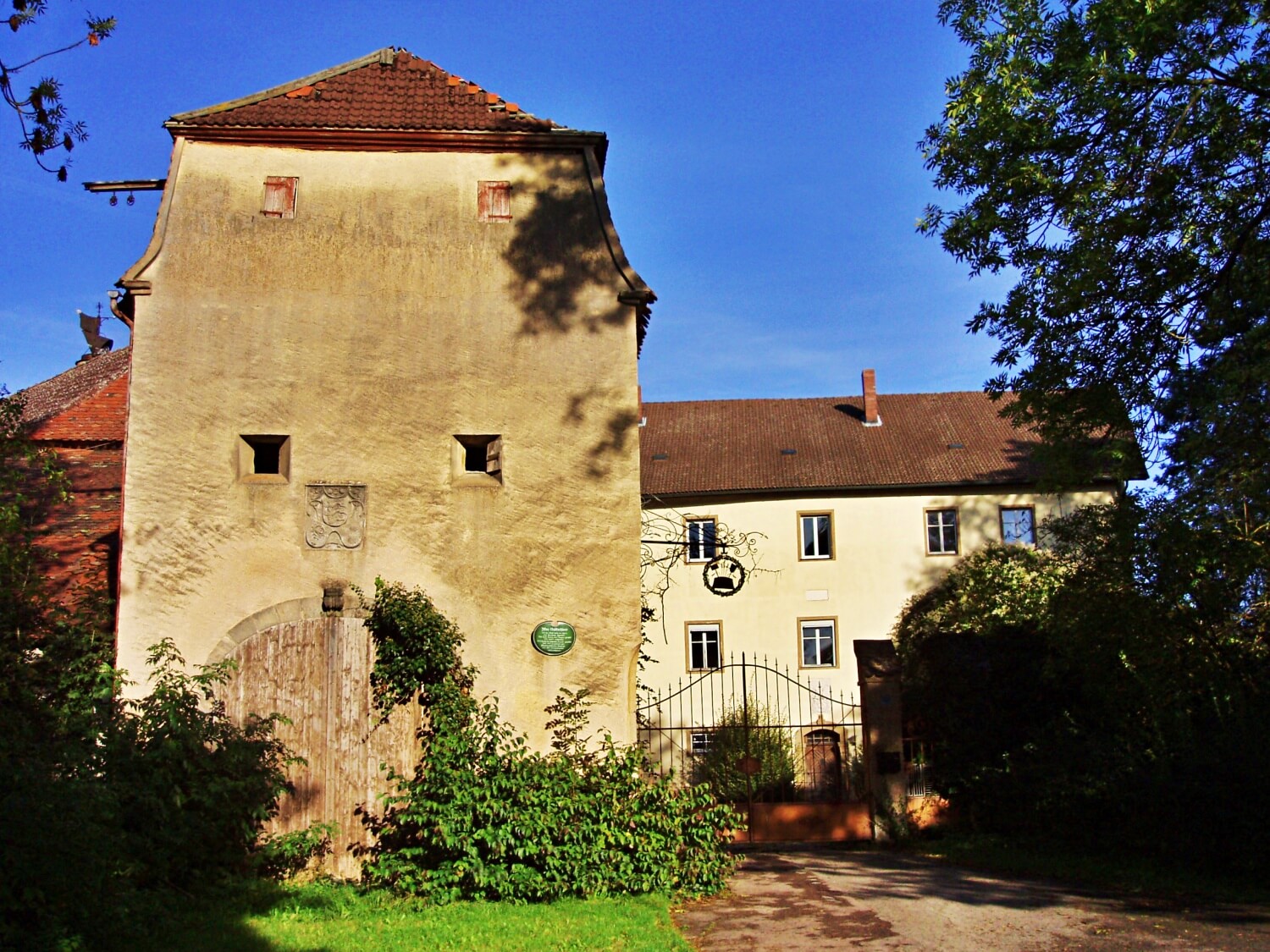
Burg Herrieden
Mittelfranken
7.3km
castle, chateau
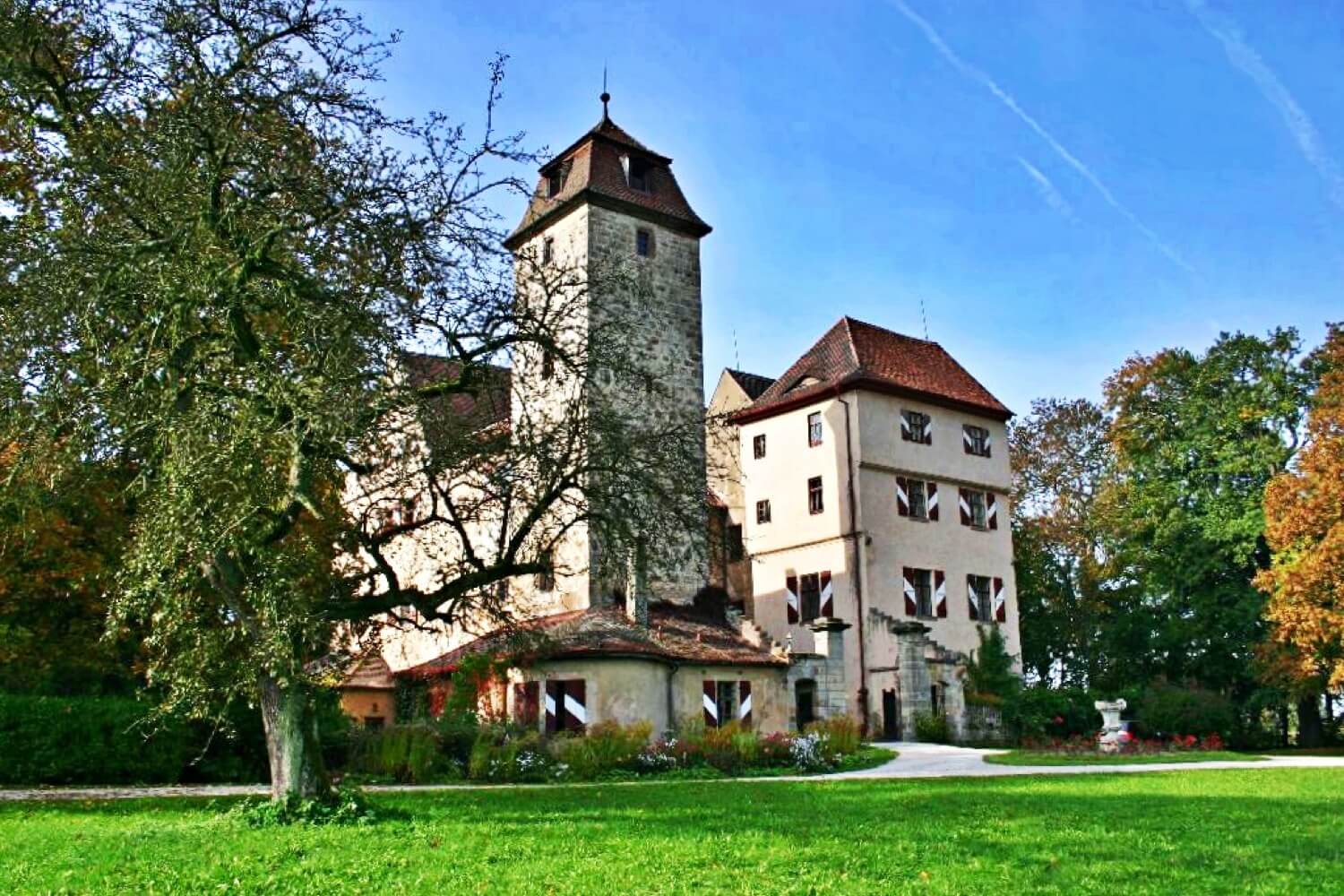
Schloss Altenmuhr
Mittelfranken
10.0km
castle, chateau
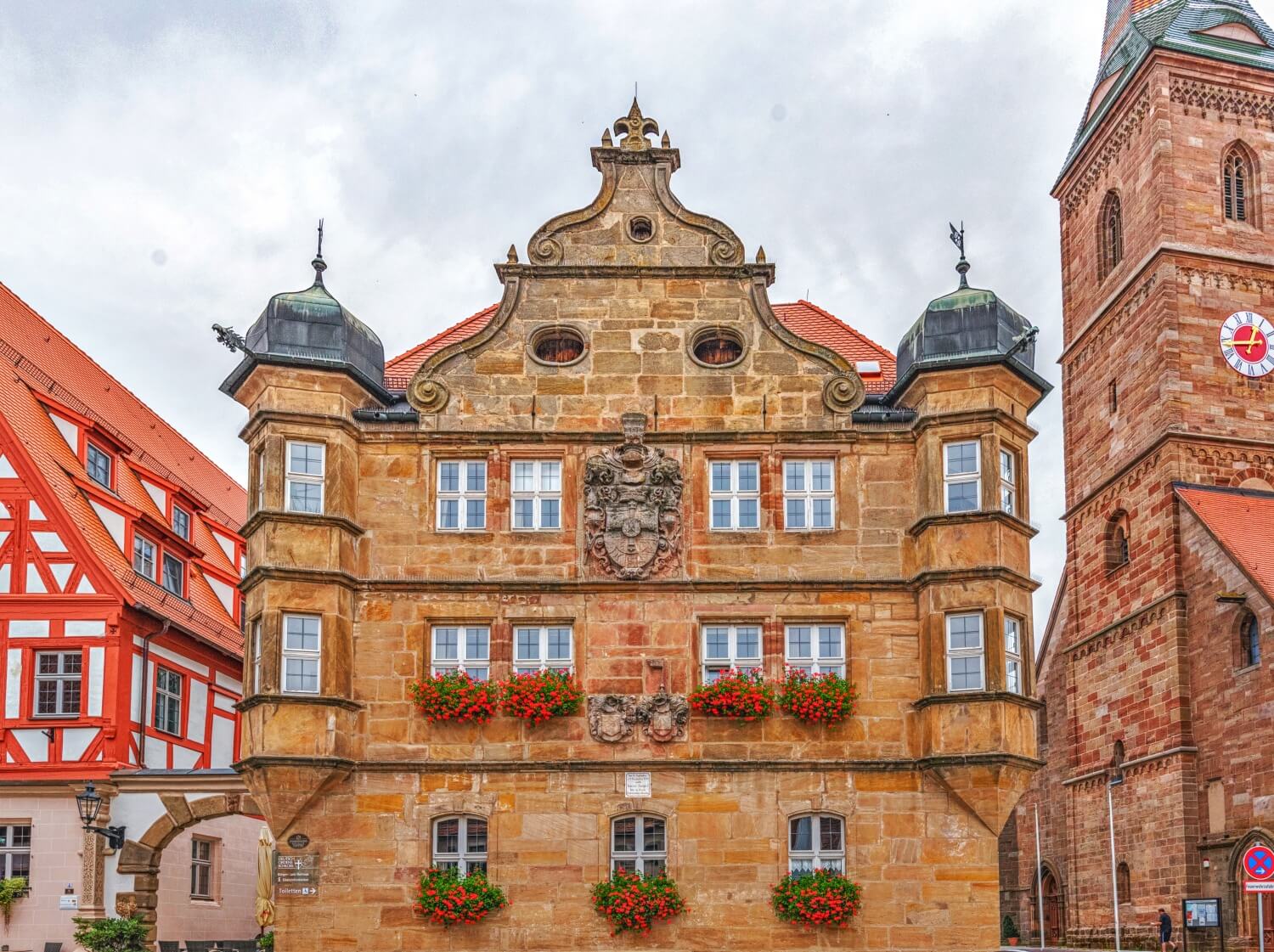
Schloss Wolframs-Eschenbach
Mittelfranken
10.5km
castle, chateau
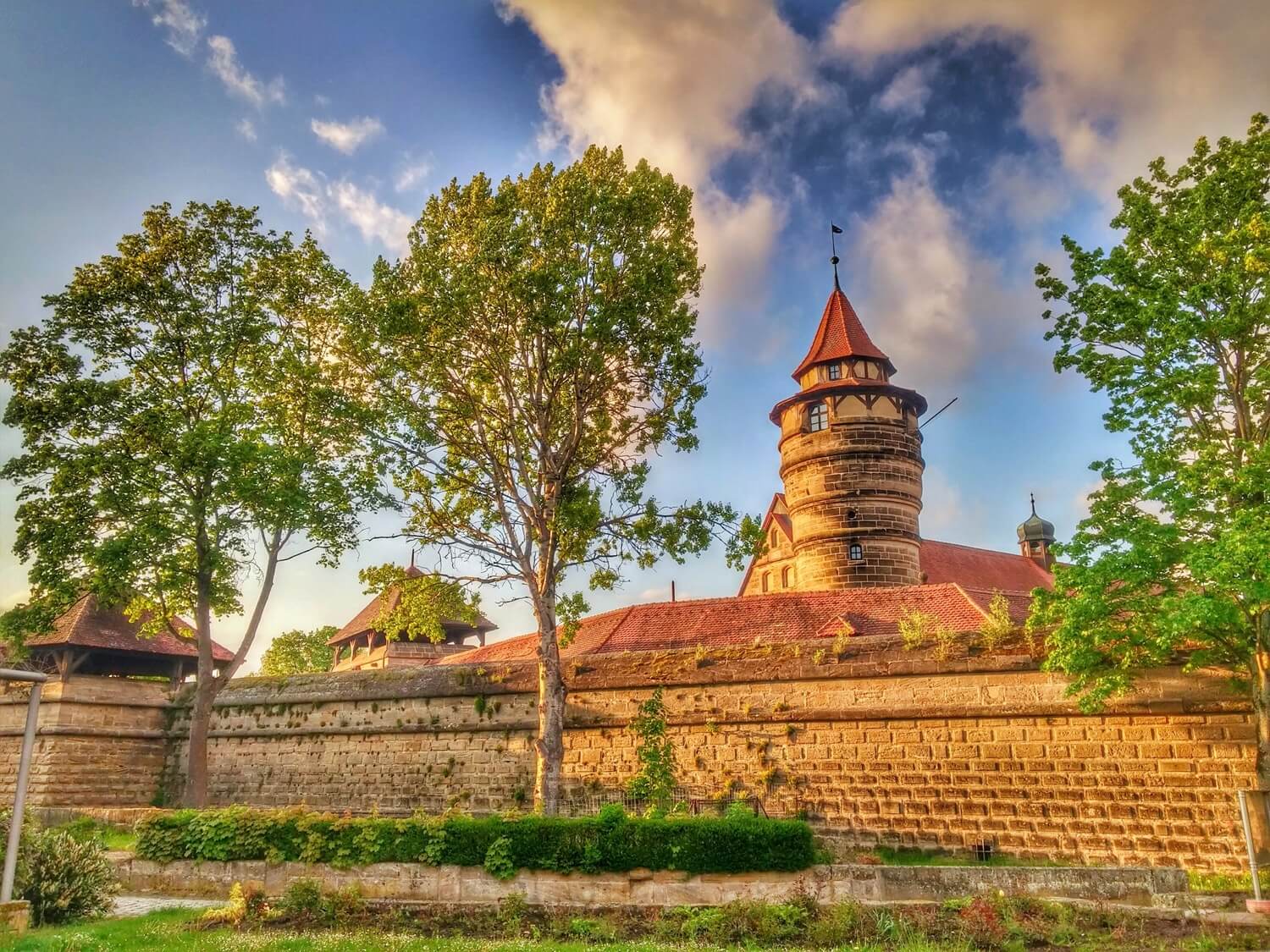
Lichtenau Fortress
Mittelfranken
11.3km
fortress
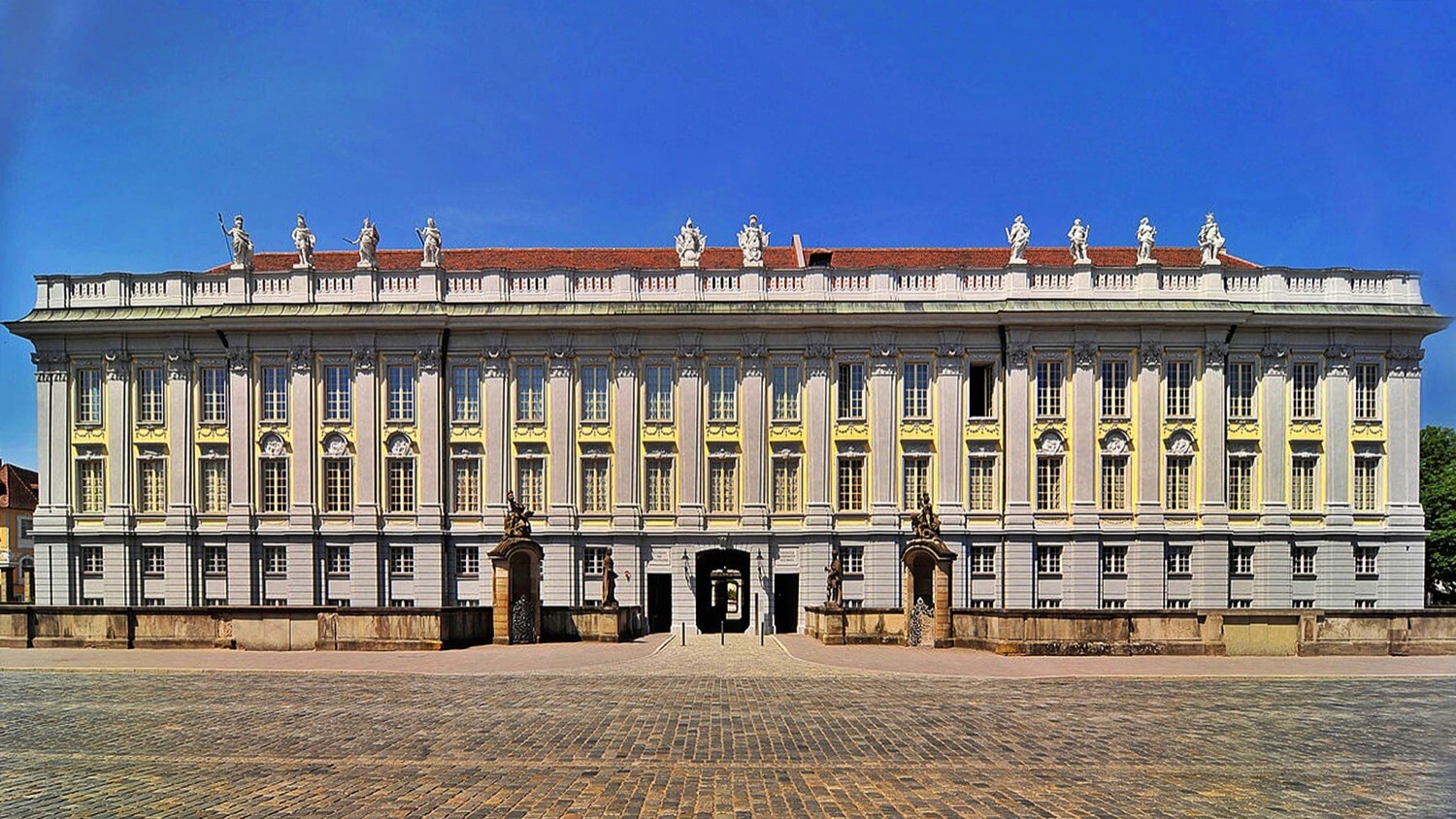
Ansbach Residence
Mittelfranken
11.4km
castle, chateau
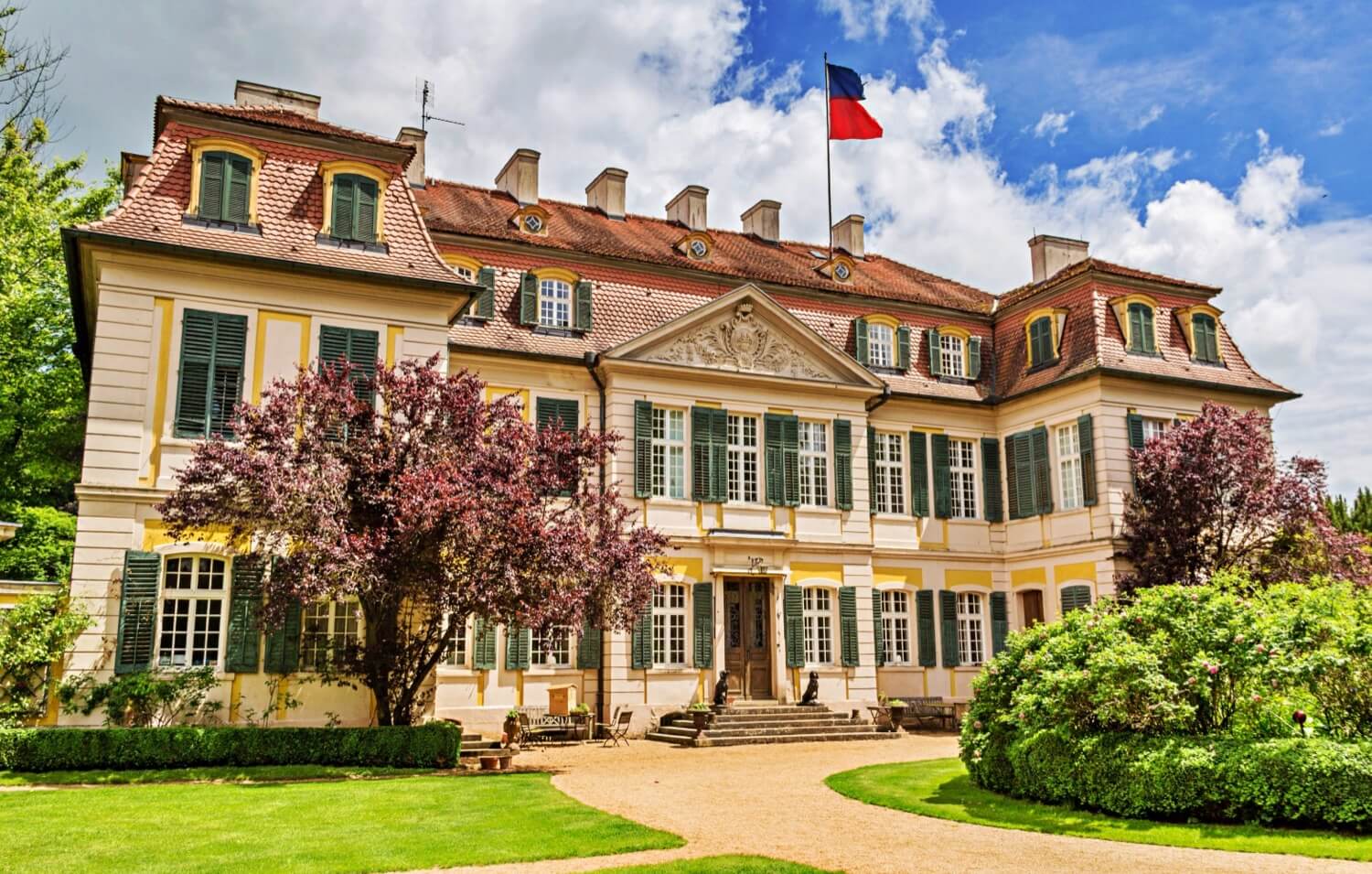
Schloss Dennenlohe
Mittelfranken
11.7km
castle, chateau
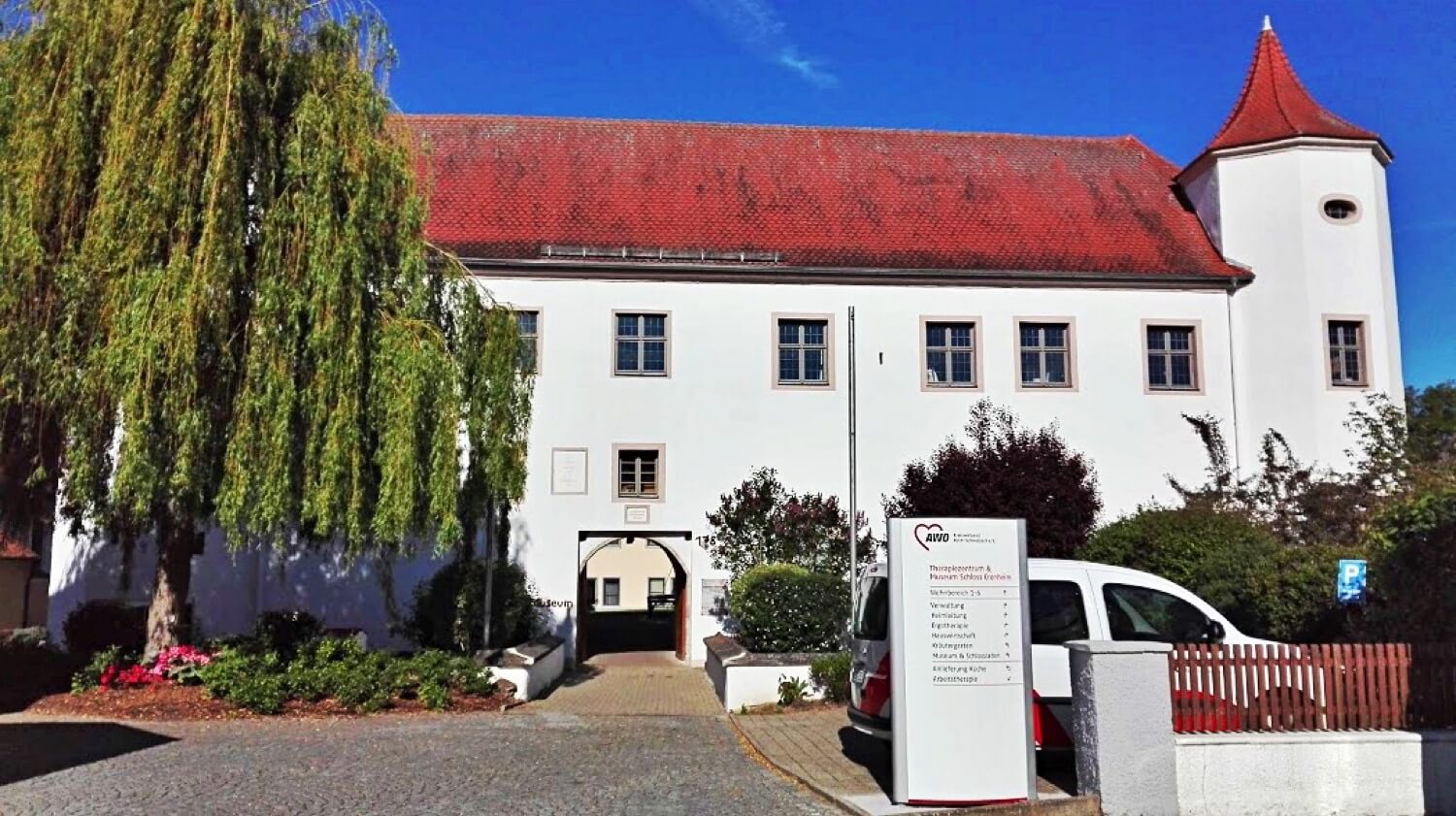
Schloss Cronheim
Mittelfranken
12.9km
castle, chateau
